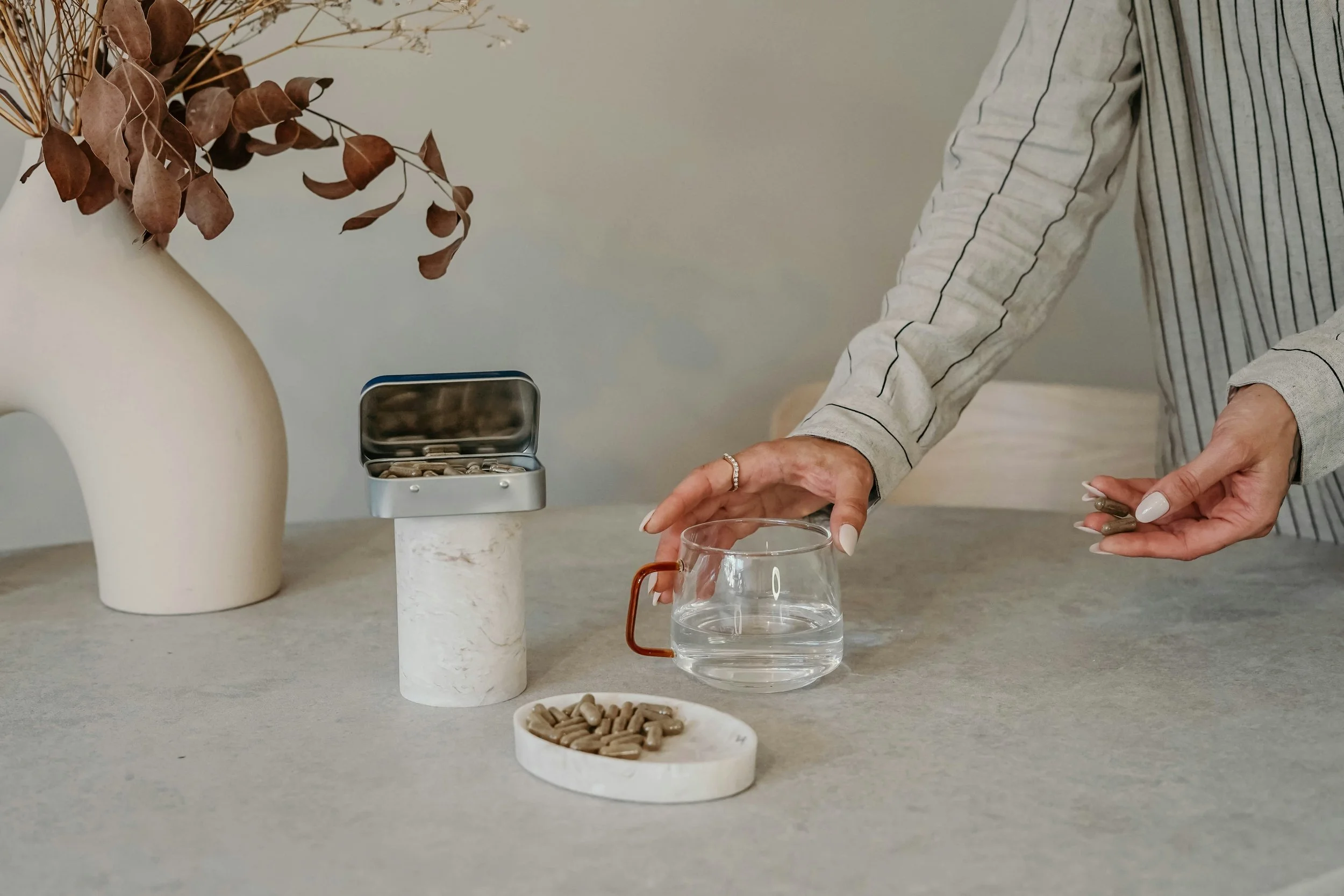Seed Cycling: Nature's Secret for Hormonal Balance and PCOS Relief
Introduction: Unlocking the Power of Tiny Seeds
In the vast realm of natural remedies, few practices have garnered as much buzz among women seeking hormonal harmony as seed cycling. This ancient yet recently revitalized approach leverages the nutritional prowess of four humble seeds—flax, pumpkin, sesame, and sunflower—to regulate cycles, alleviate symptoms of Polycystic Ovary Syndrome (PCOS), and promote overall female well-being. As an Australia-based Accredited Practising Dietitian (APD), I've witnessed countless health trends. Yet, the science-backed simplicity of seed cycling stands out, offering a fresh perspective on managing hormone fluctuations naturally.
Seed Cycling for PCOS: Easy Habits for Hormonal Balance
The Hormonal Symphony and PCOS Challenges
Imagine your body as an intricate orchestra, where hormones play the melody of life. For many women, particularly those with PCOS, this symphony can turn into discordant chaos. PCOS, a common hormonal disorder affecting 1 in 10 women globally, disrupts the delicate balance of reproductive hormones, leading to irregular menstrual cycles, excess hair growth, weight gain, and infertility. Traditional treatments often involve medications with potential side effects, leaving many to seek gentler alternatives.
The Genesis of Seed Cycling
Enter seed cycling, a holistic practice rooted in the wisdom of traditional medicine and fortified by modern nutritional science. The concept revolves around consuming specific seeds during different phases of the menstrual cycle to support natural hormone regulation. Flaxseeds and pumpkin seeds are rich in lignans and zinc, respectively, making them ideal for the follicular phase (days 1-14), where estrogen levels rise. Conversely, sesame and sunflower seeds, abundant in selenium and vitamin E, are recommended for the luteal phase (days 15-28), aiding progesterone production and easing PMS symptoms.
The Science Behind the Seeds
But what makes these seeds so magical? Let's break it down:
Flaxseeds: Their high lignan content binds to excess estrogens, helping eliminate them from the body, thereby reducing estrogen dominance common in PCOS.
Pumpkin Seeds: Rich in zinc, they support the production of healthy estrogen and progesterone levels, crucial for cycle regulation.
Sesame Seeds: Selenium, a powerful antioxidant found in sesame seeds, boosts thyroid function, indirectly influencing hormonal balance and metabolism.
Sunflower Seeds: Vitamin E, abundant in sunflower seeds, acts as an antioxidant, protecting cells from damage and supporting progesterone production.
Pumpkin seeds are rich in omega-3 fatty acids
Benefits of Seed Cycling for PCOS
While seed cycling has gained traction among the PCOS community, its benefits extend to all women seeking to enhance their hormonal health. Whether you're navigating perimenopause, looking to alleviate menstrual discomfort, or simply aiming for better overall wellness, incorporating these seeds into your diet can be a gentle yet effective strategy.
Hormonal Balance: Helps manage estrogen dominance and low progesterone, common in PCOS.
Improved Menstrual Regularity: May help restore regular cycles over time.
Reduced Symptoms: Can alleviate symptoms like bloating, fatigue, and mood swings.
Support for Insulin Sensitivity: Flaxseeds, in particular, contain lignans and omega-3s that can support insulin regulation.
How to Integrate Seed Cycling into Your Daily Routine?
Follicular Phase
Morning Smoothie: Add 1 tablespoon each of ground flaxseeds and pumpkin seeds to your breakfast smoothie or overnight oat.
Lunch or Salad Topping: Sprinkle flaxseeds or pumpkin seeds on your salad or in your lunch wrap.
Luteal Phase
Snacks: Incorporate 1 tablespoon each of sesame and sunflower seeds into your snacks, like yogurt, or homemade energy bars.
Baking or Cooking: Mix sesame and sunflower seeds into soups, stir-fries, or as a topping for baked goods.
Additional Tips for Success
Grind Seeds for Better Absorption: Ground seeds are easier to digest, ensuring better nutrient absorption. You can pre-grind seeds and store them in the fridge to keep them fresh.
Stick to Organic and Raw: Choose raw and organic seeds to avoid additives and ensure maximum nutrient intake.
Consistency: Make seed cycling part of your routine by integrating them into meals you already enjoy. Keep track of your cycle to ensure you're using the right seeds at the right time.
Start Small: If you're new to seed cycling, start with 1 tablespoon of each seed per day and gradually increase to the recommended amount.
Conclusion: Embracing Nature's Medicine Cabinet
In an era where quick fixes and synthetic solutions often dominate the health landscape, seed cycling offers a refreshing return to nature's wisdom. It's not just about treating symptoms; it's about nurturing the body from within, fostering a deeper connection to our hormonal cycles, and empowering women to take charge of their health. As the science behind seed cycling illustrate, sometimes, the most powerful remedies are the ones closest to home—waiting, quite literally, in a packet of seeds.
For more personalized advice on PCOS management, feel free to explore my services, including one-on-one consultations and tailored nutrition plans.
Let’s work together toward a healthier, more balanced life! For more insights into PCOS and nutrition, stay tuned to my blog!



